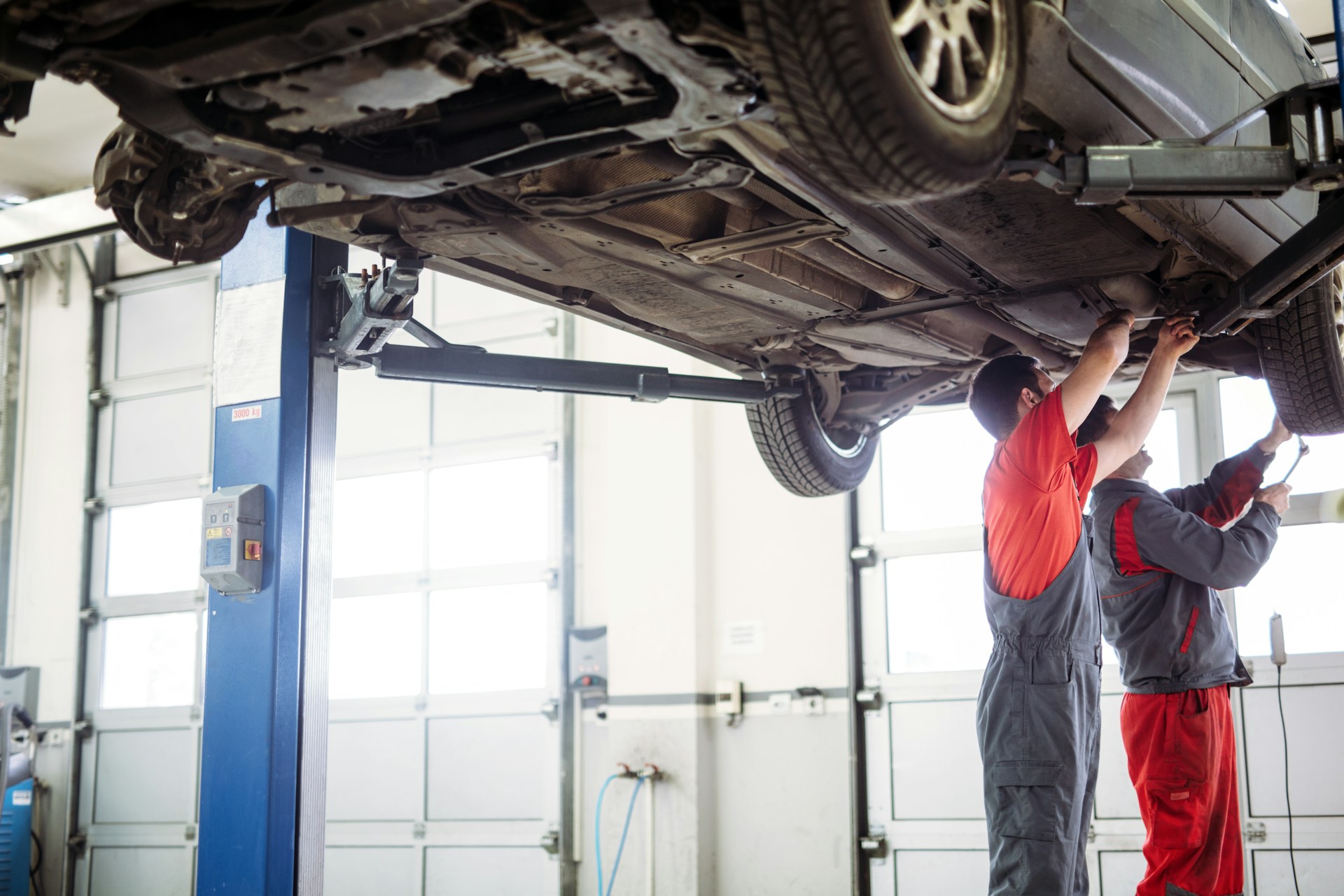Contents
What does a rebuilt title mean, and why is it important for car enthusiasts and potential buyers to understand? A rebuilt title is assigned to a vehicle that has been significantly repaired or reconstructed after being deemed a total loss. This designation impacts a car’s value, insurance possibilities, and resale options. Grasping the nuances of a rebuilt title can steer buyers towards making informed decisions. It’s crucial for those navigating the used car market to comprehend how a vehicle earns this title and what it signifies about the car’s past and its safety.
Table of Content
- What Does a Rebuilt Title Mean?
- How Does a Car Get a Rebuilt Title?
- Rebuilt Title vs. Salvage Title
- What Are the Pros and Cons of a Rebuilt Title?
- How Does a Rebuilt Title Affect a Vehicle’s Value?
- Does a Rebuilt Title Affect Insurance?
- Should You Buy a Car with a Rebuilt Title?
- What to Look for When Buying a Car With a Rebuilt Title
- Summary
- FAQ
What Does a Rebuilt Title Mean?
Understanding what a rebuilt title means is crucial for informed vehicle purchases. Essentially, it indicates that a car, once deemed salvage, has been restored to operational status. This process involves significant repairs, often after an accident or damage, verified through professional inspections. A rebuilt title highlights the vehicle’s resilience but also marks its history of substantial restoration. It offers a second life to cars that might otherwise be disregarded, allowing them to return to the road legally and safely. This label, therefore, carries implications for value, insurance, and the buyer’s peace of mind, underlining the importance of thorough research before purchase.
How Does a Car Get a Rebuilt Title?

A vehicle earns a rebuilt title through a detailed restoration and inspection process. Initially marked with a prior salvage title due to severe damage, the car must be repaired. Specialists replace or fix damaged components to meet safety standards. After repairs, the vehicle undergoes a state-required inspection to verify its safety compliance. Passing this inspection grants it a rebuilt salvage title, signaling its transformation and readiness for the road. This title reflects the car’s history of damage and repair, affecting future value and insurance considerations. This comprehensive journey ensures the vehicle is safe for drivers and passengers alike.
Rebuilt Title vs. Salvage Title
| Feature | Rebuilt Title | Salvage Title |
| Insurance | Obtaining insurance can be challenging but possible, with potentially higher premiums. | Vehicles with salvage titles are generally not insurable for regular use until repaired and rebranded as rebuilt. |
| Resale Value | Vehicles with rebuilt titles typically have a lower resale value than those with clean titles. | Salvage titled vehicles have the lowest resale value since they can only be driven legally once repaired and inspected. |
| Legality for Road Use | It can be legally driven on the road once it passes a state inspection and meets all required safety standards. | Cannot be driven on public roads until repairs are made and the vehicle is inspected, passing from salvage to rebuilt status. |
| Inspection Required | Yes, a detailed safety inspection is required to verify that the vehicle is roadworthy and meets all safety regulations. | Not applicable until the vehicle is repaired. Post-repair, it must undergo inspection to change its status to rebuilt. |
| Cost of Vehicle | Typically higher than salvage title vehicles due to the cost of repairs and the process to certify them as roadworthy. | Usually lower, reflecting the vehicle’s damaged condition and the cost and effort required to repair and retitle it. |
| Potential Buyers | Attracts buyers looking for a more affordable option than a clean title car, but who are cautious about the vehicle’s history. | Mainly attracts those who are capable of conducting repairs themselves or looking for parts. |
What Are the Pros and Cons of a Rebuilt Title?

To ensure you’re making an informed decision, using a VIN decoder can provide vital information about the car’s history and rebuild status. To begin with, find all the pros and cons of buying a rebuilt title car.
Pros:
- Unique Finds: Often, rebuilt title vehicles are models that enthusiasts seek out, providing a unique opportunity to own a less common or older car.
- Higher Specifications for Lower Cost: Buyers might access higher-spec models or luxury vehicles that would be out of their price range if the cars held clean titles.
- Learning Experience: For DIY enthusiasts, owning a rebuilt title car offers invaluable learning experiences in vehicle maintenance and repair.
Cons:
- Future Repairs: There might be underlying issues not apparent during the initial inspection, leading to future repair costs.
- Financing Hurdles: Securing financing for a rebuilt title vehicle can be more difficult, as many lenders view them as high-risk investments.
- Perception and Stigma: There’s often a stigma associated with rebuilt titles, which can influence others’ perceptions and your confidence in the vehicle’s reliability.
How Does a Rebuilt Title Affect a Vehicle’s Value?
The distinction between a rebuilt blue title and a red rebuilt title significantly impacts a vehicle’s market value. Essentially, these titles indicate that a car has undergone substantial repairs after serious damage, affecting buyer perception and resale potential. A rebuilt blue title might indicate a vehicle that has passed all necessary inspections, suggesting a higher level of repair quality. In contrast, a red rebuilt title could imply more significant previous damage or a warning to buyers to scrutinize the vehicle more closely. Vehicles with a rebuilt title, irrespective of the color code, are often priced lower than those with clean titles due to the inherent risks associated with their past damages. However, the specific color coding, blue or red, can further influence a buyer’s confidence and the vehicle’s resale price, as it may hint at the extent of damage or the quality of repairs conducted.
Does a Rebuilt Title Affect Insurance?
When you have a car with a rebuilt title, meeting the rebuilt title requirements can affect how you get insurance. There are some problems with a rebuilt title when it comes to insurance companies. They might see these cars as more of a risk because they were significantly damaged before. This can lead to higher insurance costs or limited coverage options for you. Some insurance companies might not even offer insurance for cars with rebuilt titles. It’s key to shop around and talk to different insurers to find the best insurance option for your car with a rebuilt title.
After exploring your options with various insurers, consider leveraging documentation of the vehicle’s repairs and any inspections it has passed to negotiate better terms. Insurers are concerned with risk, and thorough records can sometimes alleviate their worries. Additionally, seeking out companies that specialize in or have policies tailored for vehicles with rebuilt titles could be beneficial. These insurers often have a better understanding of the value and risk associated with rebuilt titles, potentially leading to more favorable insurance rates and conditions. Engaging with insurance agents who have experience in this area can provide valuable insights and help you secure coverage that meets your needs.
Should You Buy a Car with a Rebuilt Title?
Considering a car with a reconditioned title prompts the question: “How bad is a rebuilt title?” These vehicles are often more affordable, attracting experienced buyers. Yet, their history of significant repairs requires careful consideration. A rebuilt title can affect insurance rates and future resale value. However, for those who research thoroughly, such cars can offer value. It’s essential to inspect the car’s repair quality and understand its history fully. Informed buyers might find a rebuilt title car a sensible choice, blending cost savings with functional reliability. Always weigh the benefits against potential downsides before making a decision.
What to Look for When Buying a Car With a Rebuilt Title

When considering a car with a rebuilt title issued or looking into the details of a reconstruction title, knowing what to check is crucial. Investigate the vehicle’s repair history to understand the nature and extent of its previous damages. It’s essential to get an independent mechanic to assess the car, focusing on the quality of the reconstruction work. Examine the frame closely for signs of structural issues, as these could compromise safety. Additionally, checking the vehicle’s maintenance records can reveal much about its current condition. For insights on ensuring the vehicle’s past issues are fully resolved, preparing for getting a salvage title cleared might be beneficial. This smart approach ensures the rebuilt or reconstructed vehicle you’re considering is a safe investment.
| Aspect to Check | Why It’s Important | What to Do |
| Paint Quality | Inconsistent paint can indicate poor repair work or hidden damage. | Look for mismatched colors or textures in the paint job. |
| Alignment | Misalignment could suggest frame damage is not properly addressed. | Drive the car to check for pulling to one side or uneven tire wear. |
| Electrical Systems | Repair work can often disrupt a vehicle’s electrical systems. | Test all electrical components, including lights, dashboard, and entertainment system. |
| Engine and Transmission Health | Essential for the car’s performance and longevity. | Request a comprehensive diagnostic test to identify any potential issues. |
| Leak Test | Leaks can be a red flag for ongoing or future problems. | Inspect the vehicle for any signs of fluid leaks after it’s been stationary. |
| Rust and Corrosion | Can compromise the vehicle’s structural integrity and safety. | Examine under the car and in engine compartments for rust or corrosion. |
| Seal Integrity | Ensures the vehicle is protected against water and elements. | Check for proper sealing around windows, doors, and trunk. |
| Airbag Functionality | Safety features that must be in working order. | Verify with a mechanic that airbags are operational and have not been tampered with. |
| Legal Documentation | Guarantees the car’s rebuilt status is recognized and legal. | Confirm the vehicle has all the necessary paperwork, including a certified rebuilt title. |
Summary
Buying a car with a rebuilt title means you’re getting a vehicle that’s been fixed up after major damage. While these cars can be cheaper, it’s important to look into their past. Make sure to check the car’s history, get it checked by a mechanic, and think about things like insurance and selling it later. Doing your homework helps you understand what you’re getting into. If you’re curious about where to find these cars or learn more about them, check out a salvage car auction. This way, you can find a good deal and know exactly what to expect from your car.
FAQ
Does a Rebuilt Title Affect Recalls?
No, a rebuilt title does not affect recalls. If your car has a recall, you’re entitled to the repair regardless of whether it has a rebuilt title. Always check with the manufacturer or use their website to see if your vehicle has any outstanding recalls.
Can You Register a Rebuilt Title Car?
Yes, you can register a car with a rebuilt title. Once a car has been repaired and passes the necessary inspections, it receives a rebuilt title, indicating it’s safe to drive. However, the process and requirements for registration vary by state. It’s important to check with your local DMV for the specific steps and documents needed in your area.
How Much Does It Cost to Get a Rebuilt Title?
The cost to get a rebuilt title can vary significantly depending on several factors, including state fees, inspection costs, and the extent of repairs needed to make the vehicle roadworthy again. Generally, you can expect to pay for the inspection and any necessary administrative fees. These costs can range from a few hundred to several thousand dollars, not including the repair costs.
What Is a Certified Rebuilt Title?
A certified rebuilt title is not a standard or universally recognized designation. However, some states or repair facilities may offer a certification process for rebuilt vehicles, indicating the car has undergone thorough inspections and repairs beyond the minimum requirements. This certification can provide an additional level of assurance to buyers about the quality and safety of the vehicle. It’s essential to understand what specific certifications entail and who is issuing them.




